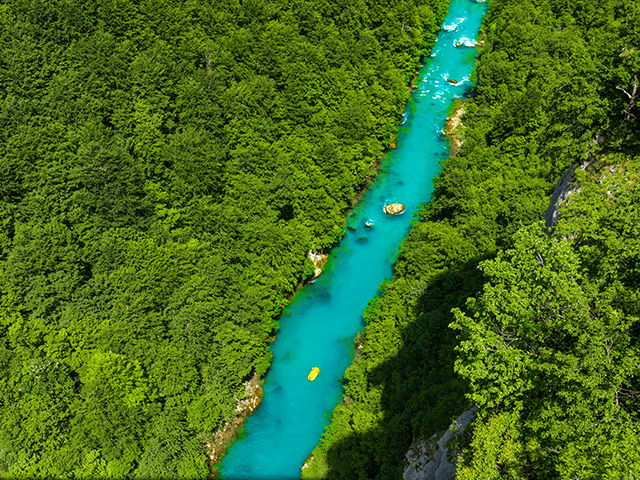The tiny Balkans nation of Montenegro is currently seeking to refinance a billion dollars in Chinese loans for a highly controversial “road to nowhere” infrastructure project.
In addition to allegations of waste, corruption, and the looming danger of China seizing Montenegrin assets via “debt trap diplomacy,” the project is controversial because of its destructive impact on the local environment, including a UNESCO World Heritage Site in the protected Tara River valley.
Environments applauded the March inauguration of a state investigation into damage inflicted on the Tara River valley by the China Road and Bridge Corporation (CRBC), which was given most of the big contracts for constructing the dubious Bar-Boljare highway financed with huge loans from Chinese banks. This is a recurring pattern with China’s Belt and Road (BRI) infrastructure projects – most of the decent jobs created by the schemes end up going to Chinese companies.
Prosecutors allege the Bar-Boljare highway, which is eventually supposed to become part of a huge coastal road network leading to Serbia’s capital of Belgrade, was undertaken without proper environmental protection measures.
The work has devastated the Tara River, dumping vast amounts of gravel and sand into the riverbed while large bridges were constructed to handle the highway, filling the waters with construction debris, wiping out fish stocks, and destabilizing the riverbanks. The threat of dangerous landslides along the Tara River canyon, the longest in Europe, has been greatly increased.
Local activists denounced the Bar-Boljare highway project as an act of “ecocide” against the Tara River.
“The arrogant breach of rules on the Tara has crossed the line and the river is dying. Everyone who contributed to the situation as it is must be held responsible, which is why we ask for the works to be halted until the responsibility of the perpetrator and the damage are determined,” said an August 2020 statement from Montenegro’s KOR environmental coalition.
Environmental activists dismissed CRBC’s promises to repair the environmental damage in May as a “bad joke,” noting the Chinese company disregarded warnings and recommendations from Montenegro’s Nature and Environmental Protection Agency (NEPA) and pleas from the United Nations, which classified the “breathtaking” Durmitor National Park in the Tara River Basin as a World Heritage Site in 1980.
A UNESCO mission to the basin in 2019 reported that the Tara riverbed was “severely devastated” within the World Heritage Site protected area. The European Commission and European Parliament also prepared reports that evaluated the Chinese construction project as “disastrous.”
“Although these problems can be addressed after the end of the highway, it is clear that there will be visible impacts even after the completion of construction,” the UNESCO report said.
Completion is an uncomfortable question, as the project is already running far behind schedule. Construction in the Tara River valley is now scheduled to be completed by the end of 2021.
The natural beauty of the basin is matched by its importance to wildlife, particularly the freshwater Danube salmon, which has few other natural habits besides the Tara River.
“Remediation of the problem is very necessary, but in the scope offered by CRBC it is definitely not enough,” Ljiljana Jokic of Civic Movement United Reform Action (URA), a leading green party in Montenegro co-founded by Deputy Prime Minister Dritan Abazovic, said in May.
“We’re not certain about the quality of rehabilitation in the planned area announced by CRBC, since if they’d done the job properly so far they wouldn’t have put the Tara in the condition it’s in now,” she said.
Jokic suggested demanding compensation from CRBC for “the destruction of the Tara.”
The Tara River was in jeopardy even before the highway project began in 2014 because hydroelectric dam construction threatened to reduce water quality and flood portions of the canyon. Water pollution from industrial plants was also reported.
Environmentalists complain the full extent of damage to the river valley is difficult to estimate because much information about the Belt and Road project is classified as “state secrets” by the Montenegrin government. Both local and international requests for data have been rebuffed by state ministers.

COMMENTS
Please let us know if you're having issues with commenting.